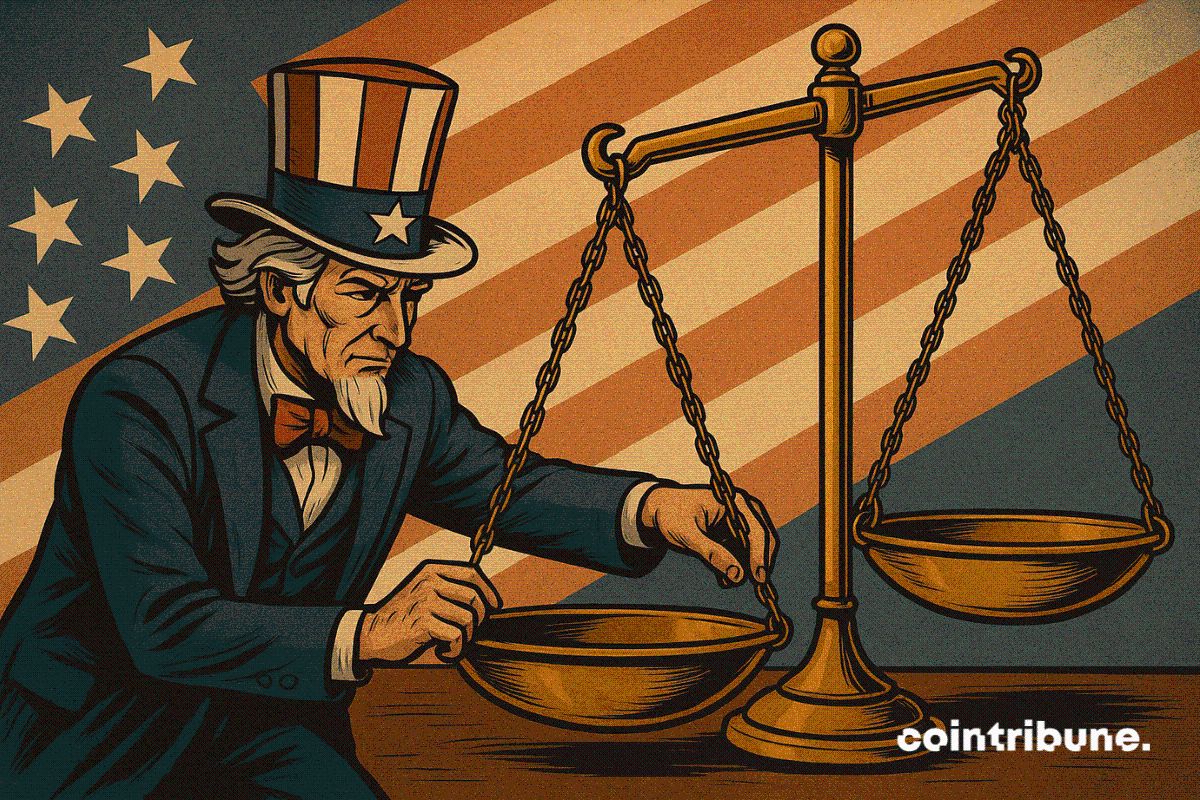Argentines turn to stablecoins amid falling peso and electoral uncertainty
- Stablecoins gain momentum with the devaluation of the Argentine peso
- Crypto arbitrage offers up to 4% profit per trade
- Cryptocurrency usage grows ahead of legislative elections
With the October 26 legislative elections approaching and the continued decline of the Argentine peso, the use of stablecoins and cryptocurrency arbitrage strategies has skyrocketed in the country. Since the beginning of October, the peso has lost more than 4% against the US dollar, leading many Argentines to seek refuge in digital assets as a way to protect their purchasing power.
According to Bloomberg , investors are taking advantage of the difference between the official and parallel exchange rates to profit through the so-called "rulo," a practice that involves buying stablecoins with dollars and reselling them for pesos at a rate about 7% below the official rate. This operation can generate returns of up to 4% per transaction, making it a popular alternative amid restrictions imposed by the Central Bank of Argentina.
Since October 1st, the government has banned citizens from reselling dollars for 90 days, further boosting the crypto market. Ripio exchange reported a 40% increase in stablecoin transactions in the week following the measure, while Lemon Cash reported a more than 50% increase in trading volume.
Julián Colombo, Bitso's manager in Argentina, explained that stablecoins "act as a vehicle for obtaining cheaper dollars." He noted that, because they are still in the regulatory process, the government "doesn't know how to control the liquidity" of these assets, allowing the market to grow without significant restrictions.
Although President Javier Milei has reduced inflation from nearly 300% to 30% since the end of 2023, concerns about the peso's devaluation and dwindling reserves remain. Throughout October, the central bank sold approximately $1,3 billion in dollars to contain exchange rate pressure.
Argentina maintains an increasingly open stance toward cryptocurrencies, with companies like Binance and Coinbase licensed to operate in the country. For many Argentines, stablecoins like USDT and USDC have become a way to preserve value. "Stablecoins are here to stay," said López, a local stockbroker, noting that "the dollar remains the true refuge in Argentines' daily lives."
Disclaimer: The content of this article solely reflects the author's opinion and does not represent the platform in any capacity. This article is not intended to serve as a reference for making investment decisions.
You may also like
ZetaChain and Axelar's breakthrough in cross-chain technology has the potential to transform DeFi and drive enterprise adoption
- ZetaChain and Axelar partner to enhance cross-chain communication, addressing DeFi and enterprise adoption barriers. - Coinbase launches Brazil's "DeFi Mullet" feature, streamlining retail access to decentralized protocols amid evolving crypto regulations. - KuCoin's PGA Championship partnership highlights crypto's growing integration into traditional industries through branding and fan engagement. - Spectra Logic deploys exabyte-scale storage for AI research, while Zymeworks reports breakthrough cancer

Zero-Fee Crypto Cards Propel the Industry Toward Unified Financial Ecosystems
- Bitget Wallet introduces zero-fee crypto cards in 50+ markets, promoting self-custody and cross-border usability as stablecoins gain global traction. - Customizable card programs enable brands and communities to issue tailored designs, with a LINE NEXT co-branded card highlighting regional adoption strategies. - GTBS and MetaPass expand crypto wallet ecosystems with decentralized exchanges, AI security, and multi-chain platforms to unify DeFi, GameFi, and SocialFi. - Industry shift toward all-in-one fina

EU divided on AI Act: Paris and Berlin call for postponement

France : Deblock raises €30M to become the first 100% blockchain bank

